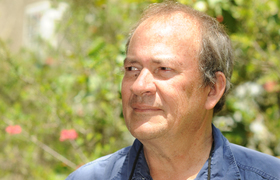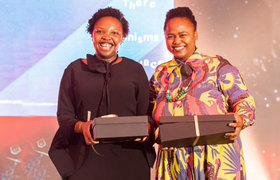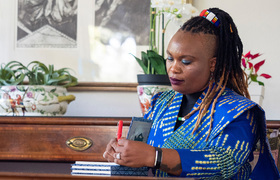Rare honours and international recognition for UCT research managers
24 May 2021 | Story Stephen Langtry. Photos Je’nine May. Read time 4 min.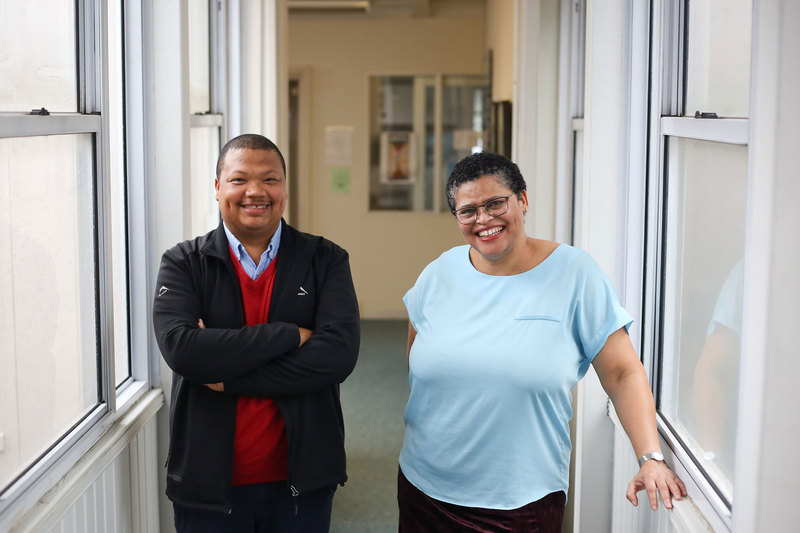
UCT staff members Natalie Le Roux (senior research manager in the Research Office) and Sidney Engelbrecht (manager: Research Ethics and Compliance in the Faculty of Health Sciences) both obtained Research Management Professional (RMP) status. The two received this honour during the first opportunity afforded to Africa’s research managers to receive this recognition.
They are among the first four South Africans to be awarded RMP status by the International Professional Recognition Council (IPRC). Joining them are Barbara Herweg, a project manager at the University of the Witwatersrand’s (Wits) Wits Enterprise, and Anita Edwards, a research manager at the Africa Health Research Institute (AHRI).
The IPRC was established in 2017 as an autonomous body that awards professional recognition to staff working in the research management and administration function. Staff are recognised through peer review of a portfolio based on evidence of the applicant’s prior learning and experience.
Le Roux and Engelbrecht are both also members of the Southern African Research and Innovation Management Association (SARIMA), an organisation that brings together research and innovation management practitioners across the Southern African Development Community (SADC) region.
Heeding the open call for professional recognition of research managers from across Africa, the two UCT research managers took the opportunity to submit their portfolios in 2019. Their applications were supported by colleagues and management in UCT’s Research Office. Their recognition is valid for five years and is renewable. During this period, they are required to maintain and improve their status by continued membership of SARIMA, and accumulation of 60 training points through further professional development training activities such as workshops, webinars and courses.
“I hope this inspires my colleagues in SADC to take the opportunity to apply for formal RMP recognition,” said Engelbrecht.
STARS programme
In addition to receiving this rare honour of becoming two of the first recognised research management professionals in Africa, Engelbrecht and Le Roux have now been invited by the IPRC to participate in the organisation’s new STARS programme. The programme gets its name from its aim: for research managers, as (t)ested and (a)ffirmed professionals, to (r)each out and (s)hare their experience with others.
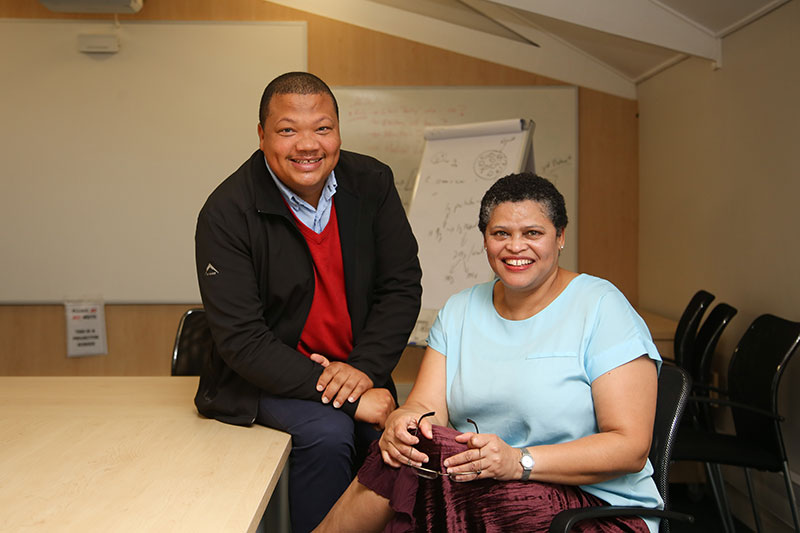
RMPs who have the skills and experience, and who were tested and affirmed as professionals, will fulfil this mandate and serve as the STARS who will extend the work of the IPRC into their institutions and professional communities.
The programme is designed to contribute to promotion of the professionalisation of research management in Africa. It will offer them the opportunity to share their expertise, experience and insight to support the IPRC’s Advocacy Committee to advocate for the importance of research management, and to encourage and support other research managers.
“I am willing to assist anyone intending to apply for the prior recognition of research management in the future open calls,” said Le Roux.
Research management, administration as a profession
Originally from Cape Town, Le Roux studied research psychology at the University of the Western Cape, University of Zululand and Leiden University. Her career started as a researcher in educational assessment at the Human Sciences Research Council (HSRC). Prior to joining UCT, she worked at the Cape Town and Pretoria offices of the HSRC, and in the University of the Free State’s (UFS) research office. She is a registered research psychologist with the Health Professions Council of South Africa and applauds UCT for the resources it has available to support research.
“This recognition is validation of all the work that we have done over the last years.”
Engelbrecht studied law and ethics at Stellenbosch University (SU) where he was first appointed in the Division for Research Development. His career in research management and administration started at SU in a variety of research management functions, before he specialised in research ethics management and administration. He has also worked at Wits and the HSRC. In 2015, he joined UCT as research ethics manager.
Both UCT research managers are passionate about promoting research management as a profession.
“Many research managers come into the profession by accident,” said Le Roux. “I hope that many more will choose it as a career path.”
“This is the first time that our work is being recognised as a profession. In fact, this recognition is validation of all the work that we have done over the years,” added Engelbrecht.
There will be future calls for professional recognition facilitated by SARIMA. In the recent open call, which closed in March, SARIMA received eight applications for professional recognition.
 This work is licensed under a Creative Commons Attribution-NoDerivatives 4.0 International License.
This work is licensed under a Creative Commons Attribution-NoDerivatives 4.0 International License.
Please view the republishing articles page for more information.








